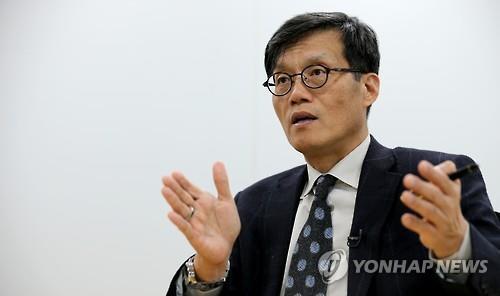South Korea has to carry out sweeping reform of the service industry as a first step to transform the manufacturing-focused economy into the service sector-led economy, a Korea-born official from the International Monetary Fund said Friday.
"The South Korean economy has been steered by the manufacturing industry and has potential to become an economy led by the higher-level service industry," Rhee Chang-yong, director of the IMF's Asia and Pacific department, said in a lecture held in Seoul.

"But there are too many regulations and restrictions on the service sector."
His remarks came after the South Korean government announced a set of plans last month to remove legal and administrative barriers on service businesses, and give them more tax benefits as a way to foster the local service industry as a new growth engine, while the country's backbone manufacturing sector has been struggling for years amid faltering exports.
Exports, the key economic driver of Asia's fourth-largest economy, have posted a record 19th consecutive month drop since the first month of last year amid waning global demand.
South Korea's manufacturing sector, directly affected by exports, accounts for nearly 30 percent of the country's gross domestic product during the 2010-2015 period. But its employment rate hovers around 17 percent in recent years, lagging far behind its GDP contribution.
The service industry, on the other hand, has been strengthening its presence in the economy, hiring 70 percent of the country's total workforce in 2015. But it accounted for 60 percent of the country's total added value, due to poor labor productivity.
The IMF director said South Korea has to conduct industrial reform and cut red tape, as China is also accelerating the economic conversion.
"If South Korea keeps adhering to the current regulative mindset on the service industry, it will likely be outpaced by China before completing the manufacturing-to-service transition," said Lee, who had served as the vice chairman of the Financial Services Commission, the top financial regulator. "China has a powerful leadership to push forward with its reform drive."
He also advised South Korea to diversify its export portfolio to deal with a Chinese slowdown and a change in consumption patterns.
Currently, intermediate goods like machinery and auto parts account for nearly 35 percent of the country's shipments to China, with consumer goods taking up 20 percent. (Yonhap)





![[Exclusive] Hyundai Mobis eyes closer ties with BYD](http://res.heraldm.com/phpwas/restmb_idxmake.php?idx=644&simg=/content/image/2024/11/25/20241125050044_0.jpg)

![[Herald Review] 'Gangnam B-Side' combines social realism with masterful suspense, performance](http://res.heraldm.com/phpwas/restmb_idxmake.php?idx=644&simg=/content/image/2024/11/25/20241125050072_0.jpg)
